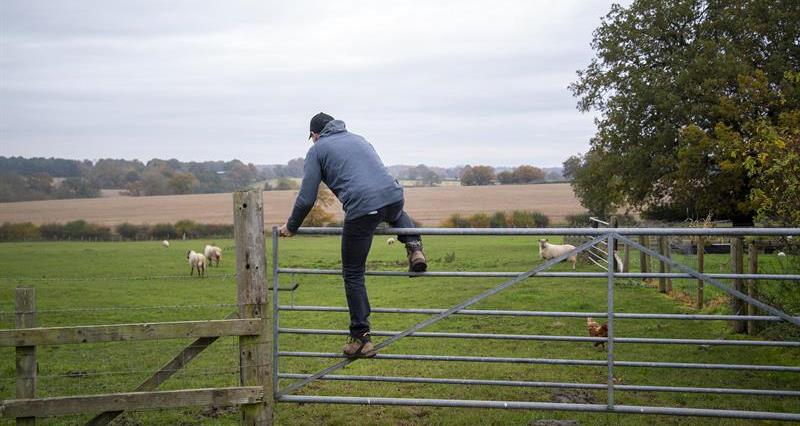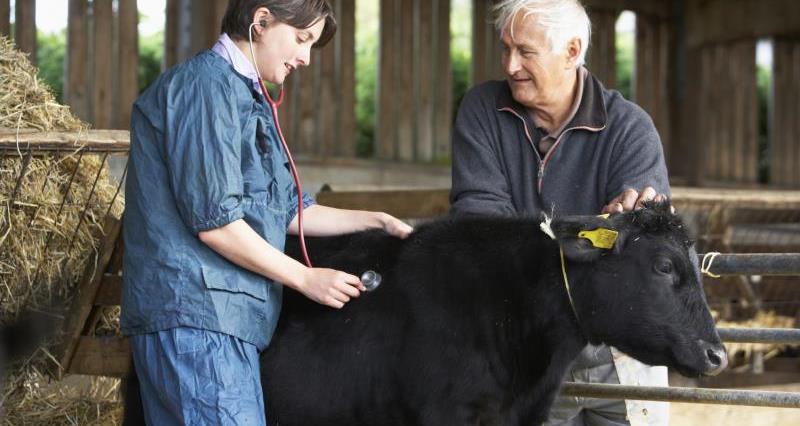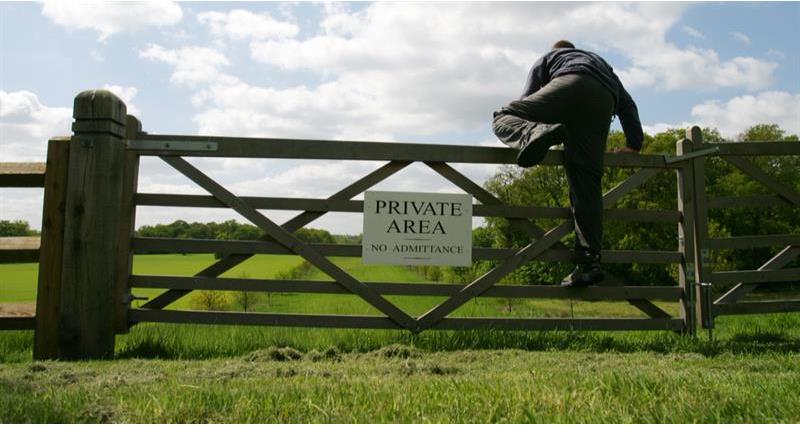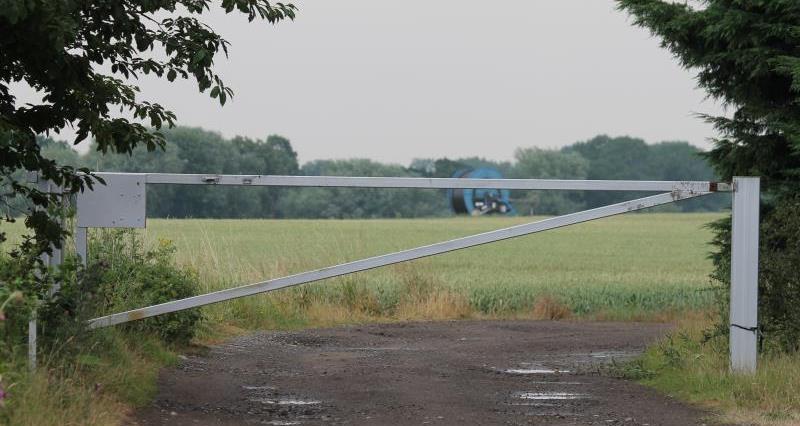Think ahead and planÌı
Planning and thinking about how you might deal with an incursion, should it take place, could help to prevent or limit the extent to which activists canÌıgain access to your farm.
Create aÌıplan, which should include important contact numbers, such as your:
- Local police station
- Rural crime officer
- Key employees who will be able to assist when dealing with the incursion
- Key contractors who may need to be alerted to the situation before they arrive
- Your solicitor, in case you need to seek legal advice
- Your vet, who may need to be contacted during an incursion for the benefit of the (stressed) animals as well as to evidence that the livestock are in good health.
You can find further information on our Activists â protesters on farmÌıpage.
Good housekeeping
Activists are most likely to be interested in farms where best practice and regulations aren't being followed. Good housekeeping can help to reduce the chanceÌıof your farm being targeted.
Give particular attention to ensuring that animals that die on farm are stored securely and appropriately until they are collected for disposal.
Ensure that yards and housing areas are kept reasonably tidy.
Please ensure that all medicines and empty containers such as vaccine glass bottles are securely stored out of the way and disposed of as appropriate.
Sick and injured animals
It is inevitable that at some point, you will have sick or injured animals on your farm. Ensuring that those animals are treated and housed appropriately while they recover is important.
Keeping records up to date
Keeping your medicine and treatment records up to date will also help to demonstrate that these animals are receiving appropriate care and attention.
If sick animals are kept on or close to areas where there is public access, you could display a small notice explaining that the group of animals is currently receiving medical treatment. This is especially usefulÌıif their appearance is likely to attract attention. It can help to reassure the public that nothing is wrong andÌıpreventÌırumours from starting about welfare standards on the farm. Doing this can reduceÌıthe chances of the farm coming to the attention of any activists.
Manage your farmâs online profile
Understanding and managing your online presence, including your social media accounts, isÌıimportantÌıas activists may use information theyÌıfind online to identify and target farms.
Further information can be found in our social media section.
Implement a social media policy
Increasingly, there areÌıreports in the media about individuals making and posting videos on social media about the business they work for. In view of this,Ìıconsider implementing a social media policy for your employees, setting out rules on publishing information about your business on social media.
Adopting such a policy will make it easier for you to take action ifÌıyou discover employees posting derogatory information about your business online.
ControlÌıtheÌıaccess to your farm
Employees will have, by far, the greatest access to your farm and information about how you conduct your business, so ensure all employees are appropriately vetted before commencing employment. Read more about Guidance for vetting farm employees.
If your activities involve inviting members of the public onto your farm - for example if you have a farm shop, holiday accommodation, offer horse livery or run educational visits - think about whatÌıvisitors will see during their visit.
You should ensure that there is appropriate signage in place to enable visitors to understand which areas are open to the publicÌıand which areas are accessible toÌıstaff only; this will also be important for health and safety reasons.
Consider providing information about elements of your business visitors may question, such as whether you have any ill animals, so that they understand what they are seeing when they visit your farm.
Think about your farm security
Activists are likely to look for easy targets, so thinking about your farm security will help to reduce the chances of your farm being targeted. Security cameras can help to identify individuals following aÌıprotest or incursion, which could be useful if you wish to bring proceedings for an injunction or if criminal offences have been committed. SeeÌıNFU security discounts.
Good security practices, such as ensuring that gates and doors are kept locked when not in use (provided there is no public right of access) can help to prevent activists from gaining access to the farm. Particular attention should be given to security around sensitive areas the farm, for example areas where sick and injured animals are treated, and areas where animals which die on farm are stored pending collection.
You may also want to consider introducing a system for searching your sheds for any hidden cameras or recording devices. If you do find anything suspicious, you should report it to the police.
You should make sure that all of your records, including any visitorsâ books, are securely locked away overnight (or when there is no one on the premises) to ensure that only you and authorised employees have access to sensitive information and data about your business.
You may wish to install CCTV, or you may be required to install CCTV as a requirement of your contract. Carefully considering who you ask to install the CCTV and ensuring that it is secure and protected is a way of reducing the risk of your CCTV being hacked and to prevent the footage from being obtained by others.
Consider installing infrared or laser technology in building doorways so that an alarm is triggered when the beam is broken by someone entering the building after hours without permission.
Any surveillance technology must be fit for purpose and suitable for use within a farm environment.
Employee training
Employees could be vital when it comes to preventing activists entering the farm.
Ensuring that employees know how to appropriately deal with members of the public who have strayed into areas where they should not have access is also important.
In some situations you can be held accountable for your employeesâ actions, so itâs important that employees know how to handle these situations properly.
You may wish to consider training employees on the following:
- On-farm protocols for suspected incursions.
- Communication â put a plan in place for communicating any potential issues identified on a day-to-day basis
- Farm security â are employees aware of the importance of locking gates and doors?
- Contact details â do your staff know the relevant contact details and procedures for the police and anyone else you could notify in the event of an incursion?
- Visitors â Procedures for checking the identity of any visitors to the farm. Do you have a visitorâs book? Are your staff aware of your visitor policy?
- Your social media policy for situations where your employee becomes aware of online abuse or criticism. An ill-informed response to a social media post could potentially inflame the situation and increase the risk of your farm being targeted. See our social media and online security section for further information.
- Engagement with activists â Do your staff know to avoid confrontations with activists where possible? Our guide on dealing with protesters on farm lists what to consider should a confrontation occur.
Guidance on due diligence for contractors
Research
Ensure prospective contractors are vetted thoroughly by carrying out your own research. This may include an online search, reading reviews and asking neighbours or others who may have used the contractors themselves.
References
You may wish to ask for, and follow up on, references before offering work to the contractors.
If the contractors refuse to provide basic information or references, it may indicate that they are not acting in good faith.
Guidance on vetting farm employees
Vetting your employees adequately and in good time is of upmost importance.ÌıThis is because they will be granted access to your business premises, will have close contact with your working methodsÌıand ultimately are in a position to cause harm to your business, should they wish to do so.
WhileÌıthe vast majority of prospective employees and students on work experience will be genuine, we have been made aware of situations where animal rights activist groups have infiltrated farm businesses through employees who are actually working for the activist group.
What to do to vet employees
Having a robust vetting process in place will reduce the risk of inadvertently recruiting an applicant who has ulterior motives for working on your farm.
Use this checklist
Get proof of identity
As part of your general recruitment process the law requires you to carry out âright to work checksâ for all applicants.
As part of this process you are required to obtain original documents from the applicant to satisfy yourself that they are who they say they are. A passport is one of the documents an applicant can produce for this purpose, but there are other acceptable ID documents, a list of which can be accessed on the government website at
Check the document in the presence of the applicant:
- Check the photographs and date of birth are consistent across the document and with the applicantâs appearance
- Satisfy yourself that the document is genuine, has not been tampered with and belongs to the applicant.
To find out more about how to carry out a right to work check, see our business guide: Right to work: the checks explained
Our Legal & Technical Advisers at NFU CallFirst can advise NFU members on the recruitment process and how to carry out right to work checks on 0370 845 8458.
Get proof of address
This needs to be dated within the last three months and could be a utility bill or bank statement that gives the correct address and the applicantâs full name. An original photocard driving licence will also suffice assuming it has not expired.
With a work experience applicant, the work experience manager should be able to put this type of information into writing on the learning institutionâs headed paper.
Get a National Insurance number
Find this on an NI card or P45/P60 or a previous payslip.
Alternatively, to get this, although in the case of students this is likely to require the assistance of the work experience manager, the applicant and potentially those who have parental responsibility for the applicant.
Get references from previous employers
A genuine applicant for a role should be willing to provide references to support their application.
Where possible, get references for employment history for the last five years. For work experience students who have not worked before, this may be in the form of references from their previous educational establishments in addition to their current learning provider.
Contact the work placement manager directly at the learning institution requesting a reference for the student together with the intended objectives for the student, ie.Ìıwhat is it they wish to take away from the work experience?
You may wish to create a template letter if you are recruiting a number of people on an ongoing basis and would like to streamline your procedures.ÌıQuestions that you can ask the referee include, how dependable they are, their integrity, flexibilityÌıand ability to work as a team member.ÌıAny general comments about their suitability for the role can also be requested and you may wish to highlight the importance of not inadvertently offering employment to animal rights activists.
If an applicant does not have any prior experience in agriculture, consider asking them in the interview process what has attracted them to the role.
Use social media
A simple search on social media platforms, including Facebook, Instagram, YouTube and LinkedIn, may also prove useful. Check out our social media advice.
Trust your instincts
If something raises suspicion, query it and do not hesitate to extend an employment start date until you are satisfied that you have ironed out any grey areas or gaps in educational/employment history.
If something does not âfeelâ right, it often means itâs not.
For further advice and information about recruitment, speak to one of our employment advisers at CallFirst on:0370 845 8458.
Supervising new starters
One suspected practice is for activists to gain access to a farm in the guise of a new employee, take video footage on their phone, and then leave the farm shortly after joining.
To help reduce this risk you could consider the extent to which you supervise new starters, and review your businessâ mobile phone policy.
Setting up local WhatsApp and Facebook groups
Points to consider
Sharing information locally can also be useful if there is an indication that activists may be in the area.
Some rural communities have social media or WhatsApp groups amongst local farmers or with their local rural crime officers where such information can be shared.
This can help tackle issues such as theft, hare coursing, and reporting suspicious activity. If you are a member of these groups, sharing information can help identify patterns of behaviour, and ensure that all farmers in the area are being vigilant and can work together.
You may wish to consider setting one up for your own community in order to share details of any suspicious activity you see in your area.
Privacy settings
Consider changing the security and privacy settings to make the group private. Read our Social media advice and also take a look at ourÌıSocial media and video tips for farmers.
It is important to keep the group limited to sharing protest activity. Do not share private or confidential information without consent and never write anything that might be thought of as abusive or any defamatory comments about others.
See our other activism pages







